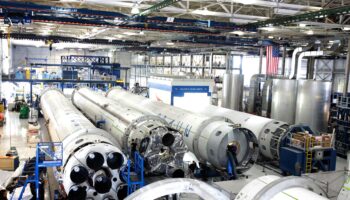Introduction:
In the bustling realm of modern transportation, a silent revolution is underway that is poised to redefine the very nature of how we traverse our world. Electric cars, once considered a niche novelty, have rapidly evolved into a formidable force, gradually overshadowing conventional gasoline-powered vehicles. As environmental concerns, technological advancements, and shifting consumer preferences converge, it becomes increasingly evident that rise of electric cars are not merely a fleeting trend but the undeniable future of transportation.
Sustainable Eminence:
At the heart of the electric car revolution lies a commitment to environmental sustainability that has captured the collective consciousness. Unlike their fossil-fuel counterparts, electric cars produce zero tailpipe emissions, significantly reducing air pollution and greenhouse gas emissions. With urban centers grappling with increasingly severe pollution, electric cars emerge as a beacon of hope, presenting a pathway to cleaner, greener cities. Their silent propulsion stands in stark contrast to the cacophony of traditional engines, ushering in a soundscape that harmonizes with nature rather than disrupts it.
Technological Odyssey:
The trajectory of electric cars is intertwin with an unprecedented technological odyssey. Innovations in battery technology have fueled the development of lithium-ion powerhouses that are not only more efficient but also possess longer lifespans. As charging infrastructure proliferates globally, range anxiety is quelled, enabling electric cars to embark on cross country journeys with confidence. The integration of artificial intelligence and autonomous driving capabilities further enhances the allure of electric cars, promising safer, more efficient roads.
Economic Realignment:
The transition to electric cars transcends the automotive industry, setting in motions a profound economic realignment. As nations pivot towards renewable energy sources, the demand for electric vehicles (EVs) surges, propelling job growth in manufacturing, research, and development sectors. Simultaneously, the dwindling reliance on oil imports transforms geopolitical dynamics, potentially reducing conflicts rooted in resource scarcity. Moreover, the reduced maintenance requirements of electric cars present a paradigm shift that could reshape aftermarket industries and the labor market.
Consumer Evolution:
In the realm of consumer behavior, electric cars are catalyzing an evolution. A younger generation of environmentally-conscious consumers is leading the charge, considering the ecological footprint of their transportation choices. Governments, recognizing this shift, offer incentives such as tax breaks and rebates to foster EV adoption. The allure of reduced operating costs, courtesy of lower energy expenses and fewer maintenance requirements, amplifies the appeal of electric cars, positioning them as an economically prudent choice.
Conclusion:
The symphony of sustainability, technology, economy, and shifting consumer values harmonizes in a crescendo that underscores the inevitability of electric cars shaping the future of transportation. As the world inches closer to a critical juncture in mitigating climate change, electric cars stand as a beacon of hope, illustrating that innovation and consciousness can converge to reshape our global trajectory. With each revolution of their wheels, electric cars drive us closer to a future where transportation is not just a means of movement, but a testament to our commitment to a better world.
- THE EVOLUTION OF PLASTIC SURGERY - 17 June 2024
- CHOOSE THE RIGHT PERSONAL INJURY LAW FIRM IN CHARLOTTE NORTH CAROLINA - 16 June 2024
- Email UX optimization, offering actionable insights - 16 June 2024






1 Comment